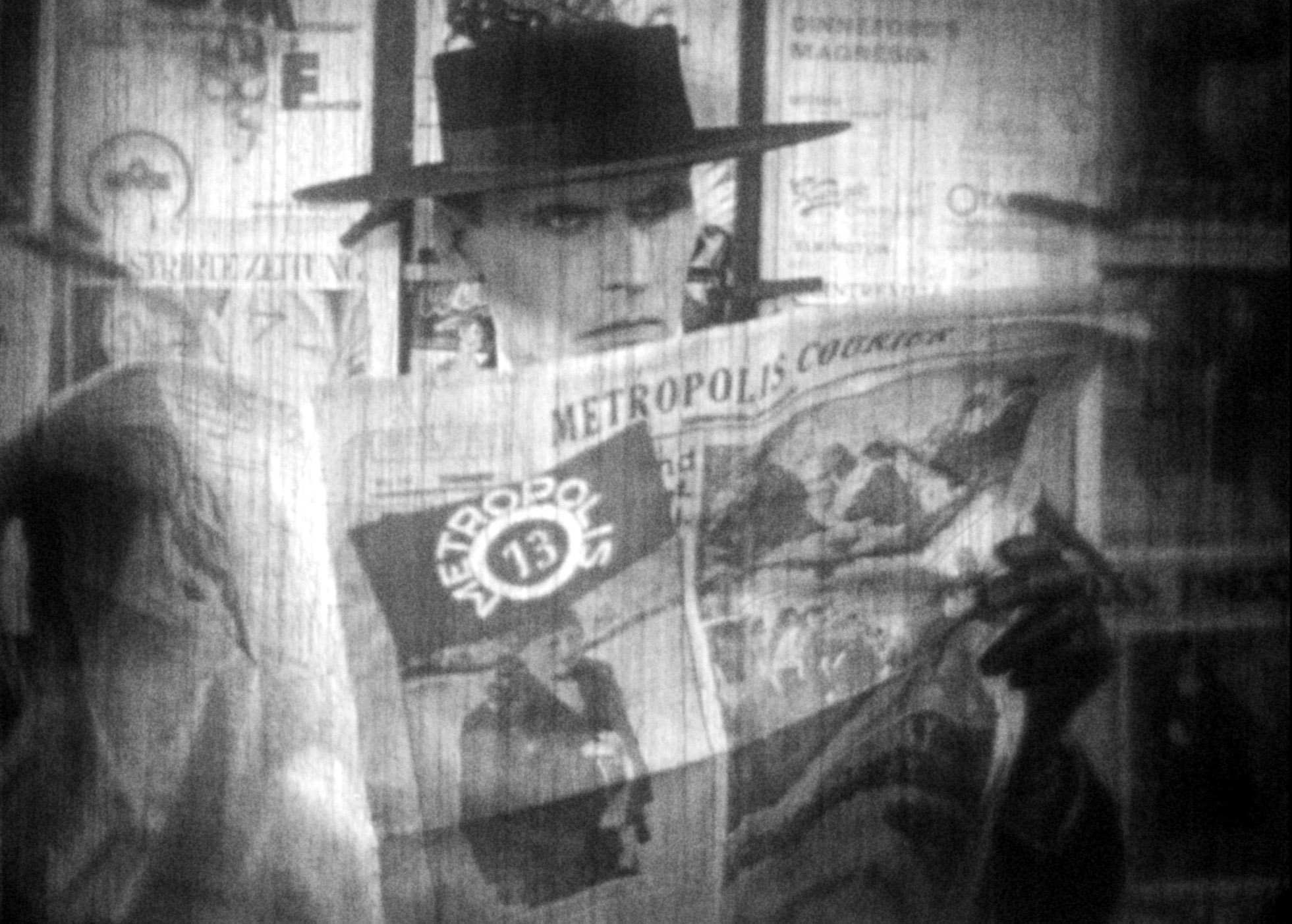The Last Six Minutes: The Saga of the Missing Metropolis

FRITZ RASP IN METROPOLIS. COURTESY KINO INTERNATIONAL/KINO LORBER
It was the most ambitious film ever attempted: More than 30,000 extras; giant effigies of a fictional Art Deco city, made from scratch; an enormous budget (five million Reichsmark-1.2 million dollars then, or roughly 200 million today, and four times the original estimate). For the first time in 83 years, Metropolis is ready to be seen in its entirety.
Director Fritz Lang’s epic of underground laborers who rise up against their overlords, a mix of science fiction, political ideology, and religious imagery is equally thematically ambitious. That original version was edited down and the excised footage destroyed, and the story of Metropolis became less about the film’s critique of Nazi Germany, or even about its use of sexy women as robots, than it was about the behind-the-scenes struggle to recreate the film as Lang originally intended.
After mixed reactions to its initial screening led to heightened nerves at German studio UFA (which had bet the entire company on the film’s performance), Metropolis was allowed to be heavily altered by Paramount Studios, without Lang’s involvement. They rewrote the story using the existing footage and shortened a two-and-a-half hour film to 90 minutes. Copies of the original cut vanished.
Even without a cohesive plot, the film is a classic, thanks largely to Lang’s striking visuals and the evident ambition of his story. Its hand can be felt in the visuals of any number of science fiction films that transcend genre, like Blade Runner or Dark City. With its popularity, so came the desire to rebuild the film the way Lang had originally intended, to see if its storytelling could match its visual power. Over the years various studios have attempted no fewer than seven versions, ranging in length from 80 to 123 minutes, each more “definitive” than the last. Even the longest cut was a half-hour shorter than the 153-minute German premiere. Prior to his death, Lang declared that Metropolis was “lost.”
In 2008, buried in the storeroom of the Museo de Cine in Argentina, a new version was discovered. Worn down over the years, and duplicated at some point from its original 35-mm film stock to lower-quality 16-mm, this was the most complete version of the film ever found, clocking in at 147 minutes. Believed to have been brought over by an Argentinian distributor after the 1927 German premiere, before the film was re-edited, it was then sold to critic/collector Manuel Pena-Rodriguez, in whose private residence the film sat for years. When he eventually sold his entire film collection to the Argentinian state, it moved to the museum, where it was placed in storage, its contents unknown. Rumors of the footage persisted for decades, but bureaucratic red tape kept film historians out of the museum’s vaults for nearly 20 years.
After two years of restoration and re-editing (using the original score of the film as a guideline, because no scripts exist) the film thought long lost is again seeing definitive release. Six minutes of footage are still unaccounted for-so the dream of discovering the “complete” Metropolis will live on.
METROPOLIS SCREENS AT FILM FORUM MAY 7–20 IN NEW YORK.






